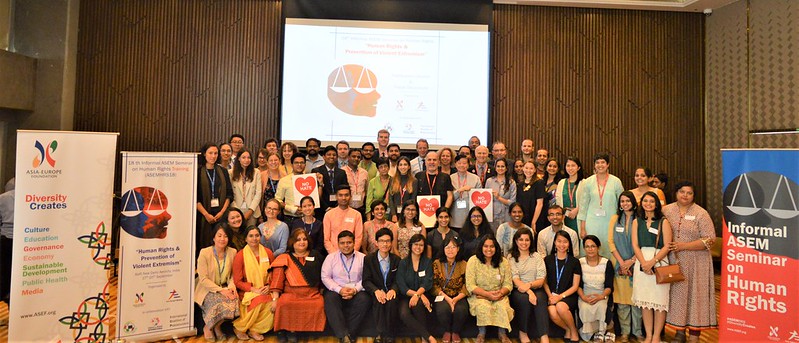
Violent extremism has been in a spotlight at least for these past years. A lot of efforts are done by many institutions, both government and civil societies. As many stakeholders use curative and hard-power approaches, there is a big question matter. Do these kinds of methods really effective to tackle this issue? Or it is just temporary solutions that produce grievance and remain injustice amongst stigmatized groups? Regarding this problem, a global initiative through UN resolution in 2015 suggested a member of states to optimize their efforts for preventing violent extremism in various ways which consider human rights aspects.
Peace Generation Indonesia had developed an inclusive program called “Boardgame for Peace” for two years (2017 – 2018) in twelve cities of Indonesia. This is a three-day training for 1200 selected youths who then learned about violent extremism, ranging from its characteristics, roots, and practical skills to bring this issue to the table by using board games. My involvement in this kind of program makes me wonder about how can we actually perceive this issue from the human right perspective. While the Peace Generation is progressing to learn practicing human rights consideration, comprehensive capacity building will help me to have the right lenses. This is what motivated me to apply the 18th Asia–Europe Meeting (ASEM) Seminar on Human Rights Education on Preventing Violent Extremism.
After the selection process, I got the news that I was selected as one of the participants and went to New Delhi, India on September 16-20th. Even though this is not my first time coming to India, but I was so excited and nervous at the same time. I would be travel alone abroad for the first time, but it was worth to my incredible experience to meet new people and share together. I and other participants joined three and half-day training at Aloft New Delhi Aerocity, India. I met around 25 people from Asia and Europe. They are government staff and social worker by background.
The topic of training is quiet broad from UN Call to Action, In-depth session about violent extremism, hate speech, and human rights education approach to Prevent Violent Extremism (PVE). During the training, I learned about how we often have a biased perspective about violent extremism. For example, religious violent groups, mostly Islam are framed as a violent extremists. While it did not apply to different kinds of violent groups based on other ideologies. Prof. TOH Swee Hin, one of resource person said that some PVE actions are counter-productive as it becomes what we call Islamophobia. So, our understanding of roots, causes, and characteristics of violent extremism are very crucial. Violent extremism is complex and many factors are intertwined. Both preventing and countering cannot see as a single solution.
On the second day, we dig deeper into the dominant causes of violent extremism. We shared one on one. I realized that violent extremism can be different from one country to another. While in Indonesia I saw that violent extremism motives are mostly about the misuse of belief, in another country, it could be a lack of good opportunity, lack of good governance, or psychosocial factors.
Then the third day, we learned about how we could implement human rights education to our PVE program. I was very happy to know that what Peace Generation did is on the same track with HRE methodologies. HRE emphasizes nonformal education methodologies and application of the Human Rights principle, i.e. relevant to participants, collaborative, participatory, probing, and thoughtful action. We also learned about advocacy strategies. And the last day, we drafted and presented our action plan in our countries. I saw creative methods from different countries using folklore, theatre, music, etc. Peace Generation gave uniqueness by bringing 12 basic peace values and board games.
After the training ended, my learning process kept going through visit experiences. I gave myself the opportunity to explore some historical places all around New Delhi. Three places that I visited were Lotus Temple, Jama Masjid, and Gandhi Museum. They made me feel how diversity turns into beauty. India taught me about how I need to trust myself that I am capable of doing peace works, how I should perceive differences, and how to always put ourselves into the other shoes. So violent extremism and all form of violence can not happen.
